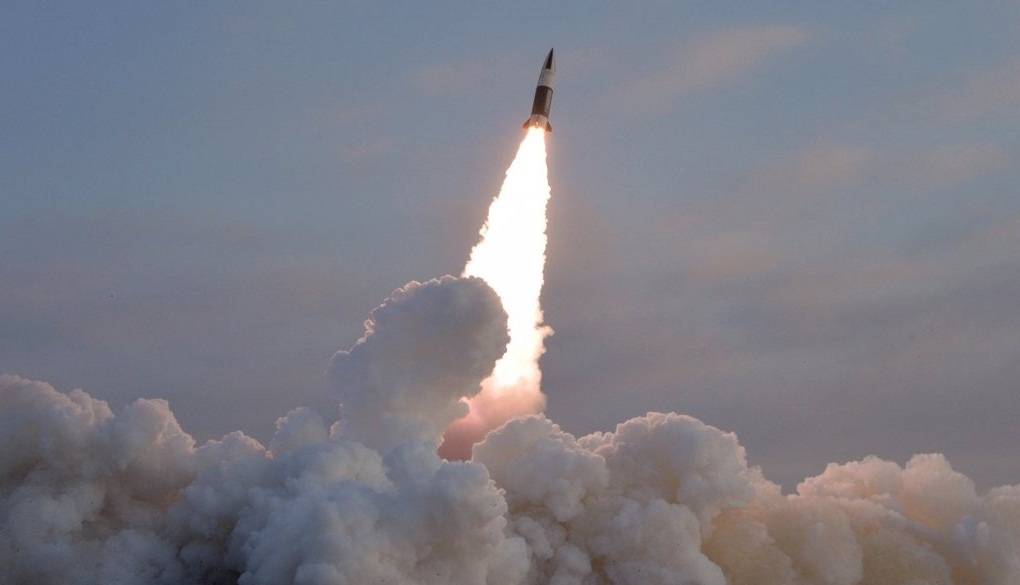
The value of the missiles and attendant equipment, training, and parts is $3.05 billion, the US State Department said…reports Asian Lite News
The United States announced Tuesday the sale of major missile defense systems to Saudi Arabia and the United Arab Emirates worth more than $5 billion.
The approval was announced two weeks after US President Joe Biden met leaders of the two countries in Saudi Arabia on a trip seen as crucial to strengthen frayed relations with them, and as both nations perceive a heightened threat from Iran.
The State Department said Saudi Arabia would buy 300 Patriot MIM-104E missile systems, which can be used to bring down at long-range incoming ballistic and cruise missiles, as well as attacking aircraft.
The value of the missiles and attendant equipment, trainings and parts is $3.05 billion, the department said.

Saudi Arabia has faced recent rocket threats from Yemen’s Houthi rebels, who have been supplied with Iranian equipment and technology.
“These missiles are used to defend the Kingdom of Saudi Arabia’s borders against persistent Houthi cross-border unmanned aerial system and ballistic missile attacks on civilian sites and critical infrastructure in Saudi Arabia,” the State Department said.
Separately, the United States will sell THAAD surface-to-air missile systems to the UAE for $2.25 billion.
The UAE has also recently been targeted by Houthi rocket attacks, which have been fended off in part by defense systems run by the US military based in the country.
“The proposed sale will improve the UAE’s ability to meet current and future ballistic missile threats in the region, and reduce dependence on US forces,” the State Department said.

Spurred on by the Houthi attacks, the UAE has now launched a wide-ranging programme to bolster its tiered air defence system with new and highly capable weapons from a variety of suppliers, hoping to avoid the supply shortages currently dogging Saudi Arabia. The kingdom has repelled so many Houthi missile attacks in the past year that it has run extremely short of Patriot missiles. Even expedited orders from the United States may not fill the gap.
Focusing on a multi-layered air defence, the UAE has opted mainly to buy South Korean and Israeli missiles, as well as keeping most of its US-made weapons. The Hawk missile, first entering service in 1959, is now close to obsolescence, despite numerous upgrades. The South Korean Cheongung 2 medium-range surface-to-air missile will fill that gap, as well as existing Patriot batteries.
In its largest arms export deal in history, South Korea agreed with the UAE to sell $3.5bn worth of these advanced missiles, along with accompanying radars. The agreement also included promises of closer cooperation in missile development between the two countries. The Cheongung 2 missile is partly based on the highly capable Russian S-400 and is able to engage multiple targets at once with a range of 40km. It is also highly resistant to electronic jamming.
Despite the size of the South Korean deal, Israel could stand to become the winner in this weapons procurement drive by the UAE. The Emirate has entered into discussions with Israel on buying either the Barak 8 or Spyder air defence missile systems. The first South Korean weapons will only start to arrive in 2024 and the UAE is looking to the Israeli systems as a stopgap.
The advanced Barak 8 has also been bought by the Indian military and Azerbaijan was reported to have used a Barak 8 to shoot down an advanced Iskander missile, launched by Armenia in the 2020 war between the two countries. The missile has a longer reach than its South Korean counterpart and can also destroy multiple targets simultaneously.
ALSO READ: China fumes over pelosi’s taiwan visit


